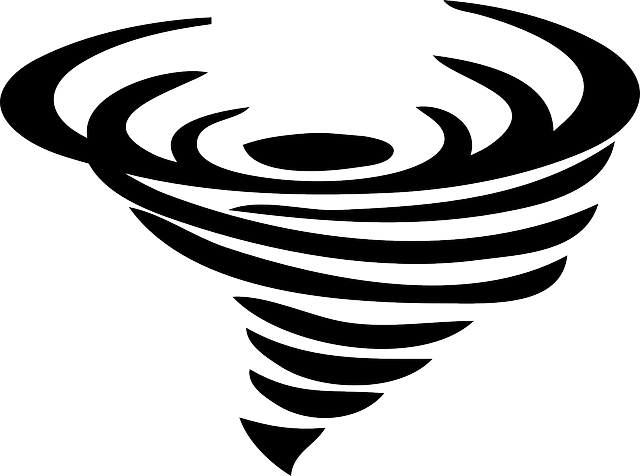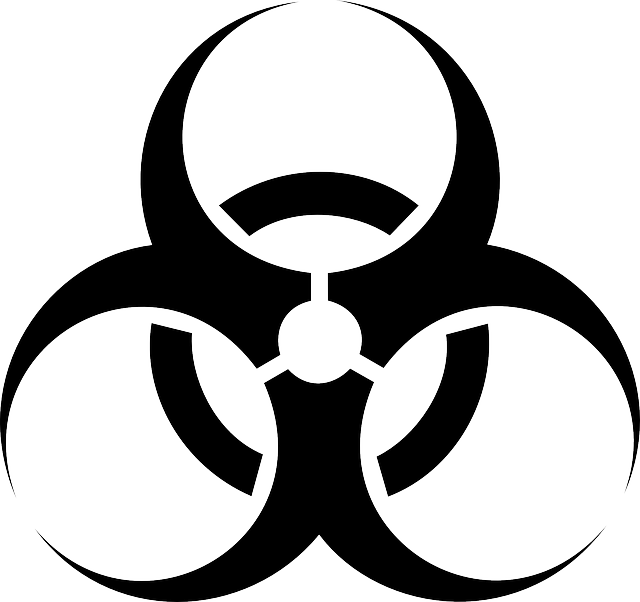
Would it surprise you to know that the meanest people are just hurt, and controlled by who and what they fear?
And would you find it shocking that their rage is often pent-up toxic emotions that they have no idea how to identify or deal with?
Renowned Trainer, Speaker, and Author of Secrets of the Millionaire Mind, T. Harv Eker has encountered enough toxic situations and people in his 3 decades of money-making service delivery, to know that he has found the key to navigating the storms of emotional chaos with a rational mind.

Has an argument with somebody else ever made your blood curdle?
Harv assures you that you’re not alone.
Someone spits out something vexing and the gloves are off.
Before you consider any alternative, you’re contributing adversely to a toxic situation loaded with former subconscious programming.
Now what if, instead of regurgitating your own toxic emotions in response, you could actually learn how to respond from positive, proactive programming?
Let’s look at what Harv says you can start doing today to free yourself from the imposing and limiting belief systems of other people.

For starters, Harv insists that recognizing that you're becoming irate, aggravated, affronted, taken aback, or whichever state tops your turvy, is step one to moving forward.
And even more so is knowing the trigger to your own toxic emotions and observing your response to it.
We’re all conditioned to respond to specific triggers, specific people, and specific situations in specific ways.
These reactions, Harv says are ingrained like grooves on a long-play record.
You might recall how records used to get stuck, looping in the same spot and replaying one part over and over and over until someone lifted the needle to make it stop...
They got stuck in a groove, and the rest of the album wasn’t getting any airtime.
Well, according to Harv, it’s no different with us.
We sometimes get stuck in damaged grooves and subconsciously react on autopilot, and sadly sometimes auto-repeat…

Now, once you notice something, you have awareness of it — but if you then torture yourself for doing so — you’ve just deteriorated that situation beyond bad for yourself.
Here’s a quote from Harv’s Zen teacher…
If you beat yourself up for noticing, you will train yourself not to notice. -Cheri Huber
And without observation, no change can occur, says Harv.
So what do you do now?
Read on and see…
When assessing situations, Harv asserts that you must understand that neither the other person nor the situation is you — and neither is within your control in that moment.
Essentially you must divorce yourself from such circumstances and separate yourself from the mind which becomes unsettled amid those situations presented by toxic emotions.
If I receive criticism about the way I teach, it’s easy for me to feel hurt or angry about that, but that isn’t me talking. That’s the small self, the ego self, the fear-based self, the protective self — the fear-based voice that is my mind. -T. Harv Eker

And that’s obviously not who Harv truly is, nor is it who you truly are, when your fear-based ego self seeks to protect itself.
Sure the mind is part of the body like limbs and appendages, but Harv emphasizes that it is not you.
Understanding this empowers you to distinguish between your mind and your actual self, he adds.
It helps you recognize your mind as the protective mechanism it is, which is simply fulfilling its function as per its programming, thereby causing you to react in a specific way and therefore producing what you feel in that moment.
Once you’re able to set yourself apart from your mind, Harv states that you become aware of your environment without any judgment and are able to respond appropriately (see the next step)…

Other people will try feeding their poison to you, warns Harv, because it's all they have to share.
And what reason would you have for eating their poison?
Just because that’s all they’re serving, doesn’t mean you must eat from their menu, or swallow what they spit out, or wallow in the wake of it, or bathe in its waters.
Their poison is theirs. It comes from their background and their conditioning. It’s not truly “them” either. -T. Harv Eker

What's the natural thing to do if you've been poisoned?
Try and get rid of it, right?
So Harv recommends that the next time someone spits out their nasty, negative, unbecoming comments, understand that the poison is theirs.
Arguing with them suggests you're trying to feed them their own poison.
It's their own stress, their own baggage, their own fear looping endlessly again.
That’s all there is to it, he adds.
You can say Harv’s famous words… “Thank you for sharing”, turn and leave or if you’re good friends, you can listen and allow them to express it but do NOT absorb it.

“When I’m in seminars, believe it or not, during our break-time, most people who come up to engage with me are very grateful and are there to learn — but some other people are there just to be “right.”
Of course, to be right, I have to be wrong, true?
So they’ll come up to me and criticize something about me or my seminar, and I generally just thank them and move on.
They might then insist on telling me why they didn’t enjoy my presentation.
Eventually, I’ll need to move on to the next person and have forgotten what that person said in about a millionth of a second because I am not going to let that slime stick on me.
Do you know why?

It’s because I have another student who is grateful, happy and wants to learn and I am not going to transfer that first person’s slime onto my next person.
No way am I doing that to them, so I’ve got to let it go quickly.
Of course, sometimes I get hooked in.
After the interaction, I feel myself all jittery and I think, “Why did I entertain that?” I’ll judge myself right away, but then breathe through it and follow the above three steps.
And it’s these times when I decide to let it go and move on, that nobody has any criticism for me!"

It’s how the Universe operates, or as Harv would say, “When we accept things as they are instead of resisting, things seem to work in our favor.”
Understand that our responses to specific issues and fears are subconscious, but it’s a practice.
How can one change their subconscious?
Harv says that you can change your unconscious/subconscious by first ‘making the unconscious conscious’.
Consciously assemble a method for handling intense or stressful situations, i.e. “The next time a person raises his voice, I’m going to respond like this,” - this helps you to consciously create a unique and useful method, he adds.

You must consciously let it be first.
When does a conscious response become an unconscious response?
By practice and repeat, according to Harv.
You can’t expect to do something once and have it automatically become subconscious right away.
It requires frequency.
Doing it over and over programs the neuron to inevitably take over, says Harv.
This neurological pathway then becomes unconscious as it is the path offering the least resistance.
Once you’ve developed your own method to deal with toxic emotions and poisonous energy, having practiced it frequently enough, Harv confirms that it rebuilds your subconscious.

From this point, you’re enabled to gracefully stave off the distasteful energy from those in your midst, and rather, focus on every exciting and blissful blessing around you.
With this mindset as a habit, Harv says athat you are truly unstoppable in each aspect of your life.
So we’ve learned that the first step for ALL transformation to occur is awareness.
You must be aware of the thoughts creating triggers within you, causing undesired reactions, so you may rewire your mind, says Harv.

What others say and do is a reflection of who they are, not of who you are.
Fear and judgment elicit triggers which, in turn, prompt particular behaviors.
Reacting out of fear usually results in ugly arguments but choosing not to entertain your negative thoughts, nor the unhelpful attacks of others starts with being aware of what gets under your skin.
Remember, you're not a garbage can and therefore serve no purpose tolerating the toxic emotional dumping of others.
Unhealed toxic feelings will not build strong loving relationships, good business partnerships, or generational wealth, so why entertain them?
Know yourself, learn better ways of being your best self and you’ll understand the value of selective interaction and powerful presence.
In a world of emotionalism vs rationalism, acting reasonably will save you time, and money as well as set you apart from unsuccessful people and situations sparing you unnecessary pain.
Your deliberate skillful detachment from toxicity starts with improving your mentality.
Your review is like a legacy, so if you liked this post, leave a good star rating, and if not, leave a poor rating - but good or bad, please leave a comment in the ratings, review, and comments section at the bottom of this post and let others know what you think.
Has your Mind ever wondered...
Fear is at the base of jealousy, anger, resentment, frustration, and anxiety - all those viciously uncomfortable emotional anchors we experience when we are triggered and have no idea how to manage a situation that has spiraled out of control.
When you experience any form of fear, the often paralyzing effect it has on mind, body, and spirit affects you mentally, and judgment becomes clouded, inhibiting rational responses.
For this reason, it is vital to understand that fear can be mastered and used as a tool for growth.
Fear, because of its potential to completely disable reasonable action.
How do you release toxic emotions?
When you’re experiencing toxic emotions, observe them one at a time and peel away the layers until you arrive at the root cause.
Healing from your own toxic emotions, or toxic abuse perpetrated by another requires acknowledging the emotion as well as the root, forgiving yourself, others, and the situation completely, finding the hidden blessing, absorbing the lessons learned, and reframing the experience as a stepping stone for your growth.
Your strongest ally in the healing process is your mindset, your will to move forward, and a desire to no longer remain anchored to the past.
Nobody said being human will be easy, or that we live in a fair world, so naturally we experience a sense of injustice and agony when we endure unpleasant events.
Whether you feel emotionally unbalanced or distressed because of a situation, the actions of others, or a regret you have, at the core is who you are as a person.
Where some have no space in their existence to experience grief, others have no capacity to love or care while many are adversely affected by something as insignificant as an unflattering opinion of someone else.
The key is to know yourself, set boundaries, and make reasonable decisions that will prevent unnecessary pain or loss.
At some stage or another we all have to deal with emotions, however, how we respond to these will be determined by our personal development.
If you want to know how to develop a millionaire mindset, you're certainly in the right place at the right time!
There are no reviews yet. Be the first one to write one.